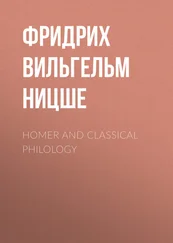Фридрих Ницше - Beyond Good and Evil
Здесь есть возможность читать онлайн «Фридрих Ницше - Beyond Good and Evil» весь текст электронной книги совершенно бесплатно (целиком полную версию без сокращений). В некоторых случаях можно слушать аудио, скачать через торрент в формате fb2 и присутствует краткое содержание. Год выпуска: 2014, Издательство: epubBooks Classics, Жанр: Философия, на английском языке. Описание произведения, (предисловие) а так же отзывы посетителей доступны на портале библиотеки ЛибКат.
- Название:Beyond Good and Evil
- Автор:
- Издательство:epubBooks Classics
- Жанр:
- Год:2014
- ISBN:нет данных
- Рейтинг книги:4 / 5. Голосов: 1
-
Избранное:Добавить в избранное
- Отзывы:
-
Ваша оценка:
- 80
- 1
- 2
- 3
- 4
- 5
Beyond Good and Evil: краткое содержание, описание и аннотация
Предлагаем к чтению аннотацию, описание, краткое содержание или предисловие (зависит от того, что написал сам автор книги «Beyond Good and Evil»). Если вы не нашли необходимую информацию о книге — напишите в комментариях, мы постараемся отыскать её.
Beyond Good and Evil — читать онлайн бесплатно полную книгу (весь текст) целиком
Ниже представлен текст книги, разбитый по страницам. Система сохранения места последней прочитанной страницы, позволяет с удобством читать онлайн бесплатно книгу «Beyond Good and Evil», без необходимости каждый раз заново искать на чём Вы остановились. Поставьте закладку, и сможете в любой момент перейти на страницу, на которой закончили чтение.
Интервал:
Закладка:
201. As long as the utility which determines moral estimates is only gregarious utility, as long as the preservation of the community is only kept in view, and the immoral is sought precisely and exclusively in what seems dangerous to the maintenance of the community, there can be no "morality of love to one's neighbour." Granted even that there is already a little constant exercise of consideration, sympathy, fairness, gentleness, and mutual assistance, granted that even in this condition of society all those instincts are already active which are latterly distinguished by honourable names as "virtues," and eventually almost coincide with the conception "morality": in that period they do not as yet belong to the domain of moral valuations—they are still ULTRA–MORAL. A sympathetic action, for instance, is neither called good nor bad, moral nor immoral, in the best period of the Romans; and should it be praised, a sort of resentful disdain is compatible with this praise, even at the best, directly the sympathetic action is compared with one which contributes to the welfare of the whole, to the RES PUBLICA. After all, "love to our neighbour" is always a secondary matter, partly conventional and arbitrarily manifested in relation to our FEAR OF OUR NEIGHBOUR. After the fabric of society seems on the whole established and secured against external dangers, it is this fear of our neighbour which again creates new perspectives of moral valuation. Certain strong and dangerous instincts, such as the love of enterprise, foolhardiness, revengefulness, astuteness, rapacity, and love of power, which up till then had not only to be honoured from the point of view of general utility—under other names, of course, than those here given—but had to be fostered and cultivated (because they were perpetually required in the common danger against the common enemies), are now felt in their dangerousness to be doubly strong—when the outlets for them are lacking—and are gradually branded as immoral and given over to calumny. The contrary instincts and inclinations now attain to moral honour, the gregarious instinct gradually draws its conclusions. How much or how little dangerousness to the community or to equality is contained in an opinion, a condition, an emotion, a disposition, or an endowment—that is now the moral perspective, here again fear is the mother of morals. It is by the loftiest and strongest instincts, when they break out passionately and carry the individual far above and beyond the average, and the low level of the gregarious conscience, that the self–reliance of the community is destroyed, its belief in itself, its backbone, as it were, breaks, consequently these very instincts will be most branded and defamed. The lofty independent spirituality, the will to stand alone, and even the cogent reason, are felt to be dangers, everything that elevates the individual above the herd, and is a source of fear to the neighbour, is henceforth called EVIL, the tolerant, unassuming, self–adapting, self–equalizing disposition, the MEDIOCRITY of desires, attains to moral distinction and honour. Finally, under very peaceful circumstances, there is always less opportunity and necessity for training the feelings to severity and rigour, and now every form of severity, even in justice, begins to disturb the conscience, a lofty and rigorous nobleness and self–responsibility almost offends, and awakens distrust, "the lamb," and still more "the sheep," wins respect. There is a point of diseased mellowness and effeminacy in the history of society, at which society itself takes the part of him who injures it, the part of the CRIMINAL, and does so, in fact, seriously and honestly. To punish, appears to it to be somehow unfair—it is certain that the idea of "punishment" and "the obligation to punish" are then painful and alarming to people. "Is it not sufficient if the criminal be rendered HARMLESS? Why should we still punish? Punishment itself is terrible!"—with these questions gregarious morality, the morality of fear, draws its ultimate conclusion. If one could at all do away with danger, the cause of fear, one would have done away with this morality at the same time, it would no longer be necessary, it WOULD NOT CONSIDER ITSELF any longer necessary!—Whoever examines the conscience of the present–day European, will always elicit the same imperative from its thousand moral folds and hidden recesses, the imperative of the timidity of the herd "we wish that some time or other there may be NOTHING MORE TO FEAR!" Some time or other—the will and the way THERETO is nowadays called "progress" all over Europe.
202. Let us at once say again what we have already said a hundred times, for people's ears nowadays are unwilling to hear such truths—OUR truths. We know well enough how offensive it sounds when any one plainly, and without metaphor, counts man among the animals, but it will be accounted to us almost a CRIME, that it is precisely in respect to men of "modern ideas" that we have constantly applied the terms "herd," "herd–instincts," and such like expressions. What avail is it? We cannot do otherwise, for it is precisely here that our new insight is. We have found that in all the principal moral judgments, Europe has become unanimous, including likewise the countries where European influence prevails in Europe people evidently KNOW what Socrates thought he did not know, and what the famous serpent of old once promised to teach—they "know" today what is good and evil. It must then sound hard and be distasteful to the ear, when we always insist that that which here thinks it knows, that which here glorifies itself with praise and blame, and calls itself good, is the instinct of the herding human animal, the instinct which has come and is ever coming more and more to the front, to preponderance and supremacy over other instincts, according to the increasing physiological approximation and resemblance of which it is the symptom. MORALITY IN EUROPE AT PRESENT IS HERDING–ANIMAL MORALITY, and therefore, as we understand the matter, only one kind of human morality, beside which, before which, and after which many other moralities, and above all HIGHER moralities, are or should be possible. Against such a "possibility," against such a "should be," however, this morality defends itself with all its strength, it says obstinately and inexorably "I am morality itself and nothing else is morality!" Indeed, with the help of a religion which has humoured and flattered the sublimest desires of the herding–animal, things have reached such a point that we always find a more visible expression of this morality even in political and social arrangements: the DEMOCRATIC movement is the inheritance of the Christian movement. That its TEMPO, however, is much too slow and sleepy for the more impatient ones, for those who are sick and distracted by the herding–instinct, is indicated by the increasingly furious howling, and always less disguised teeth–gnashing of the anarchist dogs, who are now roving through the highways of European culture. Apparently in opposition to the peacefully industrious democrats and Revolution–ideologues, and still more so to the awkward philosophasters and fraternity–visionaries who call themselves Socialists and want a "free society," those are really at one with them all in their thorough and instinctive hostility to every form of society other than that of the AUTONOMOUS herd (to the extent even of repudiating the notions "master" and "servant"—ni dieu ni maitre, says a socialist formula); at one in their tenacious opposition to every special claim, every special right and privilege (this means ultimately opposition to EVERY right, for when all are equal, no one needs "rights" any longer); at one in their distrust of punitive justice (as though it were a violation of the weak, unfair to the NECESSARY consequences of all former society); but equally at one in their religion of sympathy, in their compassion for all that feels, lives, and suffers (down to the very animals, up even to "God"—the extravagance of "sympathy for God" belongs to a democratic age); altogether at one in the cry and impatience of their sympathy, in their deadly hatred of suffering generally, in their almost feminine incapacity for witnessing it or ALLOWING it; at one in their involuntary beglooming and heart–softening, under the spell of which Europe seems to be threatened with a new Buddhism; at one in their belief in the morality of MUTUAL sympathy, as though it were morality in itself, the climax, the ATTAINED climax of mankind, the sole hope of the future, the consolation of the present, the great discharge from all the obligations of the past; altogether at one in their belief in the community as the DELIVERER, in the herd, and therefore in "themselves."
Читать дальшеИнтервал:
Закладка:
Похожие книги на «Beyond Good and Evil»
Представляем Вашему вниманию похожие книги на «Beyond Good and Evil» списком для выбора. Мы отобрали схожую по названию и смыслу литературу в надежде предоставить читателям больше вариантов отыскать новые, интересные, ещё непрочитанные произведения.
Обсуждение, отзывы о книге «Beyond Good and Evil» и просто собственные мнения читателей. Оставьте ваши комментарии, напишите, что Вы думаете о произведении, его смысле или главных героях. Укажите что конкретно понравилось, а что нет, и почему Вы так считаете.












